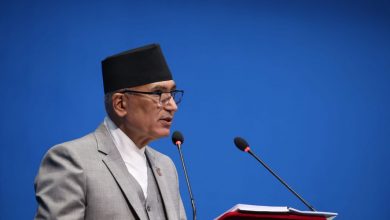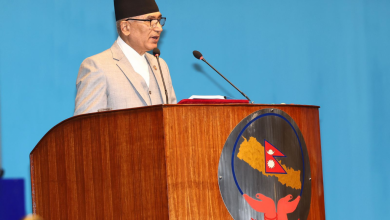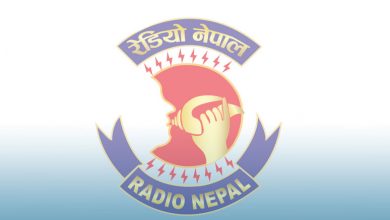‘Abortion is a need, not a privilege, and should be fully decriminalized’
Kathmandu, May 28: The need to consider abortion from a rights-based approach and remove it from the legal framework of criminalization has been stressed.
Speaking at a recent discussion themed “My Body: My Right – Safe Abortion and Decriminalization,” organized here on Tuesday, the participants dubbed abortion as a fundamental need, not a privilege, and called for its full decriminalization. They advocated for the explicit inclusion of the right to abortion in the Safe Motherhood and Reproductive Health Rights Act, arguing that a woman should possess the right to terminate unwanted pregnancy.
The event brought together medical professionals, rights activists, legal advocates, and journalists to highlight the legal barriers hindering the advancement of women’s bodily autonomy regarding abortion rights. In his presentation, Forum for Women, Law and Development (FWLD) Executive Director and Advocate Sabin Shrestha underscored the urgent need to fully decriminalize abortion, particularly in three critical circumstances –pregnancy on rape, fetus non-viable or having severe abnormalities, and a serious risk to the woman’s life.
Abortion up to 12 weeks on consent of the pregnant woman is already legalized in Nepal. The Safe Motherhood and Reproductive Health Rights Act 2018 allows for abortion up to 28 weeks under specific circumstances—such as threats to the woman’s physical or mental health, fetal impairment, or cases of rape or incest.
However, the Penal Code 2017 decriminalizes abortion up to 18 weeks in cases of rape or incest. Advocate Shrestha highlighted the discrepancies between the two laws, calling it a source of confusion and legal ambiguity. Presenting the case of a 12-year-old rape survivor who was forced to give birth to a child due to decriminalization of termination of the fetus up to 28 weeks, he pressed the need for totally decriminalizing abortion in some specific conditions.
Chairperson of Nepal Society of Obstetricians and Gynecologists, Dr Padam Raj Panta said it is a grave challenge to improve the maternal mortality rate when a single woman dies of pregnancy complications. Speaking as a panelist, he shed light on the need for decriminalization of abortion in specific conditions. “Abortion is legally allowed up to 28 weeks in special cases, but sometimes, out of a sense of humanity, medical professionals are compelled to prioritize the life of the mother over that of the fetus,” he stated.
Advocate Sonali Regmi, a reproductive health rights specialist, emphasized that abortion is a matter of self-dignity, personal decision-making, bodily autonomy, and security of woman. She argued that abortion must be treated as part of women’s reproductive health care and broader life cycle rights. Regmi also challenged prevailing ‘myths’—particularly those spread by media—that underage or unmarried girls are the primary seekers of abortion services.
In contrast, researches reveal that 55% of abortion seekers are women who already have several children. Regmi affirmed that denying abortion access violates fundamental human rights, including the rights to dignity, equality, education, and employment of women. Prabhakar Shrestha, legal advisor to the Center for Reproductive Rights, stressed the essence of policy reforms regarding abortion facilities by the constitutional and international commitments on women’s rights.
Sancharika Samuha Chair Kamala Panthi concluded that most women seek abortions simply because of their needs. “It’s not a choice, but sensitively rooted in necessity,” she asserted. The gathering echoed the need for addressing legal ‘gaps’ regarding rape when it comes to minor girls, rape survivors and the woman with disabilities.
Some of the participants raised concern over the prevalence of sex-selective abortion and lack of safe abortions including in the rural areas. The program was jointly organized by Sancharika Samuha Nepal, the Center for Reproductive Rights, and the Forum for Women, Law and Development (FWLD).






Comments